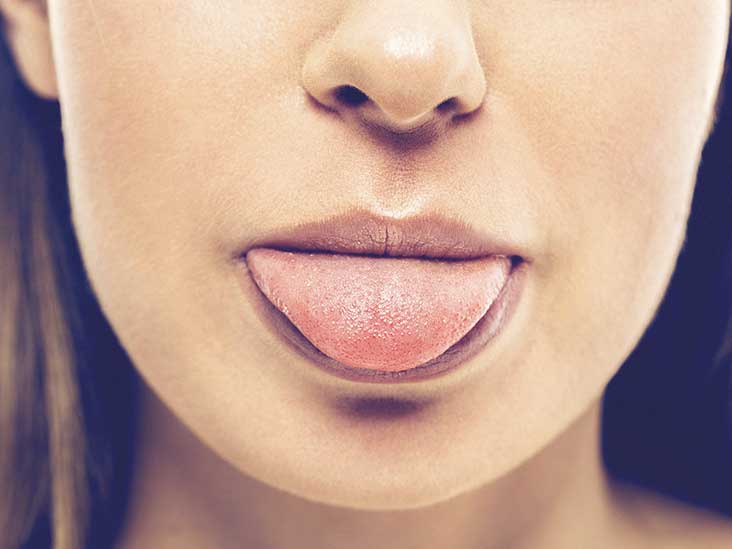Sweet Taste In The Mouth- Causes, And Treatments!
Getting a Sweet Taste In The Mouth after eating sugary food and sweets is completely fine as it is temporary but a persistent sweet taste in the mouth could be a sign of serious health conditions.
Sweetness is among the five basic tastes our tongue detects. Other tastes detected by our tongue include bitterness, saltiness, sourness, and balanced flavors known as umami.
Normally, you will feel a sweet taste in your mouth only after you eat something sugary. This could include natural sugars like fruits and honey or something processed like chocolates or ice creams.
Some medical conditions might also lead to a sweet taste in mouth even if you do not consume anything sugary. Here’s all you need to know about sweet taste in the mouth and possible causes.
Causes Of Sweet Taste In Mouth

Some health conditions can lead to a Sweet Taste In Mouth. These include the following:
1. Diabetes
It is not surprising that diabetes might lead to a Sweet Taste In The Mouth. This is because it arises from a dysfunction in your body, which influences the renal metabolism of our insulin hormones. Insulin is the one that manages the sugar level inside our bloodstream. Therefore, when you find yourself with a larger level or content of sugar, this may bring a sweet taste to your mouth.
That being said, it is also correct that people having diseases like diabetes often don’t taste sugar as nicely as other people do. Their taste buds or sense of taste is often changed by this illness, which may create serious difficulties as they start craving sugar more than others since they do not feel the sugary taste in their mouth.
If they start consuming too much sugar, it may result in cardiovascular diseases, inflammation, or a decreased immune system, all such problems can get people to fall ill or get infected more easily.
People that were treated for conditions like diabetes already possess solutions for this issue. The treatments that are given to people for diabetes act in a way that blood sugar and insulin get regulated. After this, they would not get any sensations of sweetness. If you still feel the sweet taste in mouth after taking medications for diabetes and undergoing various treatments, you must consult your doctor again.
However, the best possible way for a diabetic person to manage the illness and to get rid of the sweet taste in the mouth is to follow strict diets given by a specialist when they are diagnosed with diabetes.
2. Infections
Numerous infections may alter the taste that a person has inside their mouth. This is especially true for people suffering from conditions such as sinusitis. There are bacteria that lead to this infection which influences the nervous system. The consequence is that it leads to modification in the sensation of taste. This is how a person gets to perceive the sweet taste in their mouth when undergoing this infection. Such a bacterium is known as pseudomonas.
To heal such infections, the doctor will normally request some antibiotics. It is also right in the event of a sinusitis condition. Not all the antibiotics prescribed by the doctor are identical and might not be great to treat the same pathologies. Hence, you can not go for self-medication or receive any antibiotics that you have at house. You might have to revisit your doctor so that they can check or monitor you and guide you with the right antibiotics for your health issue.
3. Diabetic ketoacidosis
Diabetes might also lead to another dangerous complication known as diabetic ketoacidosis. This occurs when your body can not utilize sugar for getting fuel and starts using fat instead. This produces an acid known as ketone to establish in the body.
Excessive ketones in your body may lead to getting a sweet, fruity smell with a Sweet Taste In Mouth. Diabetic ketoacidosis can cause some other symptoms too, including:
- excessive thirst
- confusion
- weariness or fatigue
- nausea with vomiting
- abdominal cramping
4. Eating Habits

Studies have revealed that poor eating practices may also lead to a sweet taste in the mouth. One such experiment involving a group of men presented with an unreliable or unbalanced diet for a time span of 60 days. One of the conclusions of this experiment was that some of those people started getting a sweet taste in mouth, without even eating anything sweet or something that might explain the taste. Other people also had sour, salty, and fatty tastes, throughout the same study.
Another experiment showed that the change could be due to a lack of few substances like folic acid, zinc, and vitamin B inside the body.
If such cases are true, then the clarification is quite simple: You are required to think about your food habits and rebalance your diet. If you do not recognize how to do this, the most reliable way is to seek help from a nutritionist who will provide you with a balanced diet, accustomed to your requirements.
Trying to change the diet altogether can be so challenging that the outcome will often be a big failure at the start. In the end, we revert to the bad food habits we build up over years. However, with the assistance of a nutritionist, the rebalance of the diet is possible as it will be made as per the meals you love to eat, by eliminating or adding particular food items you like.
5. Neurological conditions
Nerve damage may be another cause of a persistent Sweet Taste In the Mouth. Those who’ve undergone seizures or strokes previously might encounter sensory dysfunction. This may influence their senses, including the sense to taste and smell.
The result of this loss is complicated and may be varied in each case. In a few cases, people might undergo a Sweet Taste In the Mouth that remains constant or does not go away while some people might have a sweet taste that comes and goes.
6. GERD or gastroesophageal reflux disease
Some people having gastroesophageal reflux disease or GERD also mention having a metallic or sweet taste in the mouth.
This might be due to digestive acids that go up into their food pipe or esophagus and ultimately the mouth. This taste might appear to start at the back of their mouth. Controlling GERD with a few dietary changes and lifestyle changes will decrease symptoms.
7. Pregnancy

Pregnancy is one more possible explanation of a sweet taste in the mouth. Pregnancy leads to changes in the woman’s hormonal levels and digestive system too, both of these can influence taste and smell and might alter your taste thus feeling a sweet taste in the mouth always.
Pregnant women might encounter unexplainable metallic or sweet tastes in the mouth. The cause behind this could still be a different condition, like GERD and gestational diabetes, so any woman undergoing persistent alterations in taste must talk to a doctor.
Several more reasons may cause the sweet taste in the mouth. The ones discussed above are among the most popular ones. However, it can also be the consequence of a neurological disorder. This occurs when some nerve signals are incorrect, which alters the way you taste.
It could also be a simple problem of reflux. When your digestive enzymes reach back to the mouth, it generally creates a sweet taste in the mouth. However, this irregularity often takes place for a really short period, and you must not get such a sensation of altered taste regularly.
When to see a doctor
If you get a sweet taste in your mouth on an occasional basis, know that it is probably nothing you should be worried about and it will vanish away on its own within a few minutes. But if you are feeling sweet taste symptoms on a constant or growing basis, you must see a doctor.
You might prefer to see your primary care physician nearby, or you may also prefer to see any specialist. Many reasons for a sweet taste in the mouth seem to be connected with the olfactory nerves and respiratory systems. Other reasons for this taste are linked with the hormones in your body (endocrine system) and also some neurological issues. So, you might prefer to see one or more of the given specialists:
- ear specialist, nose specialist, and throat doctor
- endocrinologist
- neurologist
When you visit your doctor, they will conduct a physical examination or test and inquire about your previous medical history. They may also inquire about your family’s medical records or history, which might influence your probability of having the conditions that lead to a sweet taste in the mouth.
At your first visit, the doctor will try to learn about the underlying condition that may be causing a sweet taste in the mouth by performing various diagnostic tests. These may include:
- blood tests to monitor hormones in the body and blood sugar levels
- blood tests were conducted separately to monitor for bacterial and viral diseases
- brain scans to moderate neurological activity and watches for nerves
- CT scan or MRI scans to examine the lungs for symptoms of cancer.
Treatment for Sweet taste in the mouth
As discussed above, a sweet taste in the mouth could be a sign of health problems. If you wish to get rid of such condition, below are some directions for you:
Antibiotics

If you are undergoing sinusitis generated by Pseudomonas infection (sinusitis), medications like antibiotics are thought to be the trusted treatment plan. Based on your current health status, while there are different antibiotics present in the market, you must ask the physician for references and guidance.
Oral Hygiene
A sweet taste in the mouth can also come from poor oral hygiene habits. When the little amount of food is left in the mouth, it starts producing some acids which will make the saliva taste sweet the following day. Therefore, you must brush your teeth frequently and adequately. This must be followed particularly after eating foods with high sugar content to dodge the condition.
Diet
A sweet taste in the mouth could be the effect of an irregular diet, for example, consuming high sugary food or acidic foods. It impacts the levels of blood sugar and insulin negatively in your body and generates the condition. Therefore, you must set up a balanced diet with no items like artificial sweeteners such as candies or soda, which could assist you to eliminate a sweet taste.
Alternative Treatments
Depending on the status of a sweet taste in your mouth, the following different treatments might assist you to reduce the persistent sweetness:
- Antacids
- Eat more lean protein, fruits, and fresh veggies.
- Decrease the intake of sugar, unhealthy fats, and processed foods.
- Include Probiotics supplements in your diet including kimchi, miso soup, yogurt, etc.
- Insulin Therapy
- Treatments for digestive issues
Make certain to see the physician if you are someone having diabetes or experiencing nerve damage.
How to prevent sweet taste in the mouth
If the Sweet Taste In Mouth occurs occasionally, chances are it will vanish on its own without doing anything. Staying healthy and practicing good eating habits may help counter this difficulty in the future. That includes consuming a diet rich in wholesome foods, involving fruits, dairy, vegetables, and lean proteins.
Try not to consume a lot of sugary food. These raise the risks of complications, particularly diabetes, which is linked with a Sweet Taste In the Mouth.
However, if Sweet Taste In Mouth still persists and is caused by an underlying medical situation, adhering to the treatment plan provided by doctors will help prevent the signs from coming back. Listen to the doctor’s treatment guidance carefully. If the condition does not go away or frequently comes back even after you are following the doctor’s directions, make sure you contact the doctor right away.
The Bottom Line
Undergoing an unexplained sweet taste in the mouth only once or twice is not normally a cause for concern. However, if the sweet taste persists or happens frequently or for a long duration of time, it is a great approach to see a doctor.
A precise diagnosis is the most reliable way to tackle an underlying disease early and evade severe complications.

